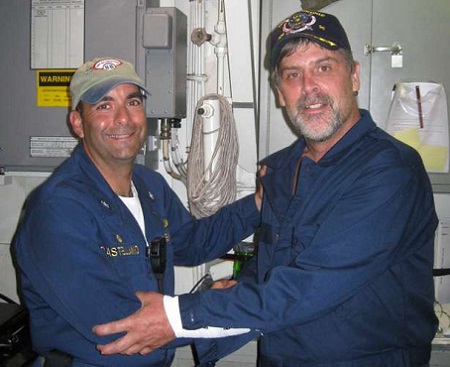Garnering a reputation for leading roles in films while facing difficult odds and quick thinking under pressure, casting Tom Hanks in the lead role of Captain Richard Phillips opposite Barkhad Abdi in a movie set on the Indian Ocean was a masterful casting decision. Captain Phillips (2013) is an emotionally tense, action-packed movie based on the 2009 hijacking of an American ship by Somali pirates.

Captain Richard Phillips of Vermont was the captain of the Maersk Alabama merchant ship that was aiming to move cargo was from Ṣalālah, Oman, to Mombasa, Kenya when it was targeted by pirates from Somalia intent on leveraging the abduction of the crew for financial gain. The pirates were led by Muse, as portrayed by Barkhad Abdi.

The movie Captain Phillips offers first the notion of piracy threats in the shipping lanes of the Indian Ocean that Phillips and his crew would face. Seeing alerts surrounding the threats, Phillips first aims to drill countermeasures with the crew of the Maersk Alabama, which later involves the real thing in a sequence portrayed by Michael Chernus, Chris Mulkey and Mark Holden, among others, for the merchant mariners.

Portraying the opposing viewpoint of the Somali pirates, in addition to their leader, were Barkhad Abdirahman, Faysal Ahmed and Mahat M. Ali as Bilal, Najee and Elmi, respectively. The film portrays the economic and cultural pressures that led to the piracy in provoking the conflict. The mutual desperation of the pirates and the merchant marines were captured respectfully in the film.

On top of speaking to these realities, the fundamental product of the Captain Phillips movie was in capturing the tension of the conflict itself. Part of the need for the crew of the Maersk Alabama was to resolve or string out the conflict long enough to allow for the US Navy response mounted by USS Bainbridge, USS Halyburton, and Navy SEAL Team 6 to resolve the situation. Much of the effective drama within the film captured an initial piracy warning, an initial drill, the capture and immediate aftermath of the piracy, and the following drama of the naval intervention.

The movie Captain Phillips is based on the book A Captain’s Duty: Somali Pirates, Navy SEALs, and Dangerous Days at Sea as written by Richard Phillips, the captain of the Maersk Alabama at the center of the film’s story. As noted in lawsuits filed by crew members other than Phillips, the hijacking lawsuits against the cargo ship’s Danish owner, Maersk Line were later “settled for an undisclosed sum” due to Phillips‘ alleged failure “to heed warnings and set a course that put [the crewmembers] in danger.”

Captain Phillips was an entertaining movie from an action and adventure perspective. While covering serious subject matter based in actual events, that part adds legitimate tension to the story while perhaps indicating the path that the overall story would take. I am thankful for the underlying service in bringing resolution to the incident, despite there being sadness some of the underlying truths that the film reveals. That statement made, I appreciate the film’s execution in granting Captain Phillips 4.00-stars on a scale of 1-to-5 stars.
Matt – Saturday, November 28, 2020
